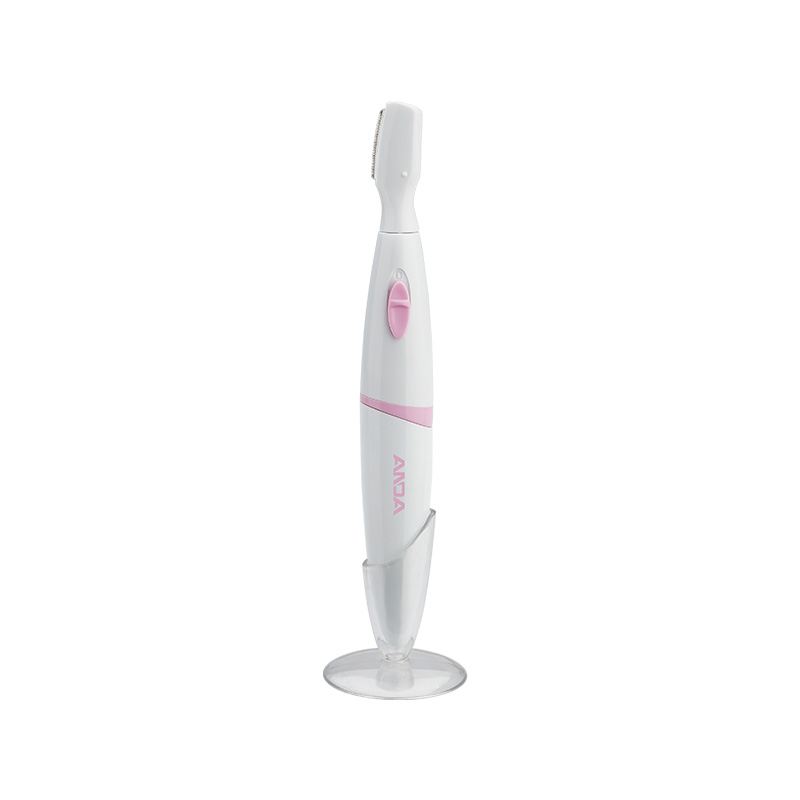 2025.07.04
2025.07.04
 Industry News
Industry News
Hair Removal Mechanism and Technology Used
Women's electric epilators and laser hair removal represent two distinct approaches to achieving smooth, hair-free skin. An electric epilator works by mechanically grasping and pulling out hair from the root using rotating tweezers or discs. This process is purely physical and does not involve any light or chemical reactions. In contrast, laser hair removal uses concentrated beams of light that target the melanin in hair follicles, gradually damaging them to inhibit future growth. The epilator offers instant hair removal with immediate visual results, while laser treatments work progressively over multiple sessions to reduce hair regrowth long-term.

Duration of Results and Hair Regrowth Rate
The difference in longevity of results is a key point of comparison. An electric epilator removes hair from the root, which typically delays regrowth for two to four weeks, depending on the individual’s hair growth cycle. However, the hair will eventually grow back at full strength. Laser hair removal, on the other hand, aims to reduce and eventually halt regrowth in treated areas. After a series of treatments, many users experience significant hair reduction, with some achieving permanent results. For those seeking longer-lasting smoothness, laser hair removal offers a more sustainable solution, albeit with more time and investment.
Suitability for Skin Types and Hair Colors
Women's electric epilators are generally suitable for all skin tones and hair types, as the device does not rely on melanin or pigmentation. They are particularly useful for people with light or fine hair that may not respond well to laser treatments. Laser hair removal, while effective, works on individuals with light skin and dark hair due to the contrast required for the laser to accurately target the follicle. Advances in laser technology have improved effectiveness across more skin tones, but results may still vary depending on hair thickness, color, and skin sensitivity.
Comfort Level and Pain Sensation
Both hair removal methods can cause discomfort, but the type and intensity differ. Using an electric epilator can be painful, especially for beginners, as multiple hairs are pulled out simultaneously. The sensation can range from a mild pinch to sharp stinging, particularly in sensitive areas like the underarms or bikini line. With repeated use, many users report reduced discomfort. Laser hair removal causes a different kind of pain, often described as a snapping or stinging sensation accompanied by heat. Most professional treatments use cooling systems or numbing gels to ease the process, and discomfort tends to lessen over time with fewer active follicles to treat.
Cost, Accessibility, and Maintenance
Cost is a significant factor when choosing between the two methods. Electric epilators are a one-time purchase and can be reused for years with minimal maintenance, making them a budget-friendly option for at-home use. Laser hair removal, whether done in clinics or with home devices, involves higher upfront costs and often requires multiple sessions for visible results. Professional laser treatments may offer faster and more precise outcomes, but they come with a premium price tag. Additionally, occasional maintenance sessions may be needed to sustain long-term results.
Safety and Side Effects
Women's electric epilators, while generally safe, can sometimes cause temporary skin irritation, redness, or ingrown hairs if not used properly. Exfoliating before use and following up with a soothing lotion can help prevent these issues. Laser hair removal may cause temporary swelling, redness, or pigmentation changes, particularly on sensitive or darker skin. It is essential to follow professional guidance and aftercare recommendations to decrease risks. Overall, both methods are safe when used as directed, but the potential side effects and necessary precautions differ.
Conclusion
Choosing between a women's electric epilator and laser hair removal depends on individual preferences, pain tolerance, budget, and desired results. Electric epilators provide immediate, cost-effective hair removal for all skin types, while laser treatments offer a longer-term solution with reduced regrowth over time. Understanding these key differences helps users make an informed decision that suits their lifestyle and grooming goals.